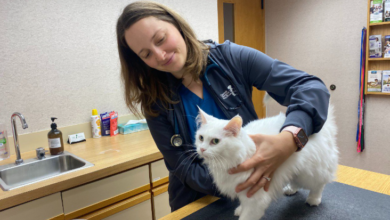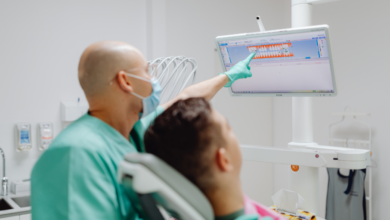Why Rehabilitation Centers Are Essential for Addiction Recovery

Introduction
Dependence is a multifaceted and highly individualistic process which directly impacts a great number of people and their closest ones. Receiving help from rehabilitation centres can become a dream when thinking about the efforts to overcome addictive behaviour. These centres provide a more rigid programme, advice and specific therapy to enable the client to rebuild their lives. In this blog, each topic will involve a look into why rehabilitation centers are important, the different categories of centers, and why the centers are crucial. When you finish reading this post, you’ll have practical tips on choosing a rehabilitation facility as well as ways to help someone going through this process.
Understanding Addiction and the Need for Rehab
What is Addiction?
Substance addiction is categorised as a chronic disorder that refers to the continuous use of substance in spite of the retaliatory effects. It originates from a mother and offspring mix of heritable, mental, and ecological causes. Dependency is not only about relying on a substance but it is about body and mind, friends and family, work and school, and everything in between.
Millions of families are affected in some way by substance abuse, loved ones struggle with mood swings, financial stress, and lack of control. As much as it is a lonely cycle, rehab institutions provide the way out with professional level excluding insane kinds of help.
Why Rehabilitation is Necessary
As much as one needs willpower to quit using drugs or alcohol, there is much more to the actual process of managing the disease of addiction. Employee rehabilitation services only treat not only the physical process of coming off substances but also the psychological and behavioral cues that make one an addict. Rehab centers are the centers that can give the patient a controlled environment where he can concentrate solely on recovering from the disorder and is always closely monitored by medical as well as psychological practitioners. More formal treatment planning can also be effective for developing confidence, rebuilding relationships and for the more important part of developing relapse prevention skills.
Types of Rehab Centers and Their Approaches
Different Types of Rehabilitation Centers
There is no one-size-fits-all solution for addiction recovery, and rehabilitation centers offer varied options to suit unique needs:
- Inpatient Rehab Centers
Outpatient patients only spend some time at the facility, while inpatient patients live at the facility, undergoing a complete treatment process. This option is suitable to addicts who have a severe addiction problem or their family situation at home is rather unfavorable.
- Outpatient Rehab Centers
Outpatient services have one great advantage – the people can go to work and other daily activities and return home after the therapy session. This is a good idea for a person with a less severe case or a person who cannot afford to step away from work.
- Luxury Rehab Centers
Luxury rehab centers offer addiction treatment based on the highest quality services and medical care and encourage users to take benefit from facilities similar to the spas. These are usually customized those intending to have a private and cozy environment for the recovery processes.
Treatment Approaches in Rehab
Treatments offered by rehabilitation centers typically fall into one or more of the following categories:
- Medical Treatment
Concentrating more on the physical and chemical needs of the rehab, medical detoxification is a standard step in most rehabilitation processes. For instance, Methadone or Suboxone can be administered in order to alleviate the withdrawal signs and use of opioids for diminishing craving.
- Therapeutic Treatment
Psychotherapy involves CBT, group counselling and family therapy that discuss the mental issues leading to dependency and educate patients on ways to handle them.
- Holistic Treatment
These treatments are focused to clean the mind and the body and are often accompanied with yoga classes, meditation and nutritional consultation.
The Role of Family and Healthcare Professionals in the Rehab Process
Rehabilitation is not an isolated process. Families and healthcare workers can be of great influence in this process and help an affected person to recover.”
The Power of Family Support
Prolific data also imply that the increase of family engagement will likely enhance the prospect of recovery strongly. Listening and communication enables the survivor and the family/ partner/ friend to spend time together practicing randomly expressing patience and encouragement as they work towards restoring their trust and relationship in mutual recovery after rehab. Some of the present day rehab centers use family therapy in order to cater to the needs of families and establish ways of effectively communicating with the concerned person.
Doctors and Nurses’ Advice
Directors, resident physicians, therapists, and counselors guarantee that the patients are offered person- and evidence-based treatment programs. It allows patients to show their responsibility and get what they need to move from the difficult stages of cleansing, rehabilitation, and restoration safely and with compassion from the specialists.
Continued Aftercare Support
Staying in touch with the rather helpful rehabilitation center and partaking in aftercare programs are important especially for continuous abstinence from alcohol. Such programmes offer a schedule and direction for the management of issues that develop after one completes a rehabilitation course. Here are some essential components of aftercare support:
1. Therapy and Counseling
Subsequently, therapy and counseling sessions need not stop abruptly as people wrestle with issues, learn methods to handle them, and build up their resolve. Seminars are explicit opportunities to address and explore feelings states, cope with stress, and consequently sustain a healthy frame of mind.
2. Self-help and Mutual Aid Groups
Taking part in meetings, for example, AA or NA secures social support from peers. These experiences enable people to feel that they belong, to understand each other, and, as a result, be held accountable, equal accountabilities being derived from meetings, group work, etc.
3. Healthy Lifestyle Practices
Preventing rebound is also critical when it comes to maintaining a proper lifestyle over a long term. This means; exercising, taking a balanced diet, ensuring you get enough sleep, and using tools that help you keep off stress through activities like mindfulness or meditation. Promoting general health wellbeing has benefits to a person’s mental and emotional state of being.
4. Measures To be taken in case of relapse
Such treatment procedures are crucial for the safety of the improvement achieved in the recovery process. Some of the critical skills include recognizing relapse signs, using proper ways of dealing with stress and coming up with a relapse prevention strategy. Awareness of the different kinds of personal cues and having specific plans to avoid the temptations and high-risk situations could also help the people experience overcoming the difficulties.
Finding better ways to support people after detention is a true challenge, so, again, it is vital to address aftercare services to each person and their situation. Step by step, people can maintain that strong desire for the purpose of staying sober and developing an effective and rewarding life beyond rehab.
Life After Rehab: Relapse Prevention and Support
Steps for Staying Sober
What happens after rehab is nonetheless the true measure of how well a person is recovering. To maintain sobriety, individuals can take the following steps:
- Build a Support System
Family and friends should also be encouraged while choosing peers from support groups like The Alcoholics Anonymous or Narcotic Anonymous.
- Stick to a Schedule
Maintain a schedule for the day by scheduling work, hobbies or exercises in order to avoid succumbing to the old habits.
Recognize Triggers
One must understand what personal stimuli are those circumstances that may lead to a relapse and how they can be dealt with.
- The Need for Aftercare Services
As with most rehabilitations, there are aftercare programs which some of the rehabilitation centres provide after the rehabilitation process. Some of the things that are done are therapy sessions, follow-up sessions and sober coaching, and other additional treatments will assist an individual to stay on track.
Finding the Right Rehab Center
Tips for Choosing a Rehab Center
The selection of the rehabilitation center is important when it comes to getting treatment. Here’s how to narrow your search:
Assess & Scrutinize Accreditation and Credentials
Private facilities that are accredited by large accreditation organizations such as CARF or The Joint Commission must be used.
Assess Treatment Options
Select a center that makes individualized patient’s treatment plans, with both medical and psychological interventions.
Consider Location
Determining if returning to a previous environment will enhance or hinder the achievement of recovery objectives.
Check for Aftercare Support
Outpatient care is a good way to keep going and help people avoid relapse when they are released from rehab centers .
Online Resources for Research
It is always advisable to check the directories of the rehab on the website like SAMHSA (Substance Abuse and Mental Health Services Administration) or by consulting with local support groups on their experiences on the particular rehab.
Rehab Centers are the First Step Toward a Brighter Future
Recovery or withdrawal is one of the most difficult and heroic steps a man or woman can take. Rehabilitation centers bring in the framework, assets, and backing that are important to empower individuals to make that principal move. The engraving of the above approach ensures that families and healthcare professionals play an active role in ensuring that they take part in the process of sober living.
If you or a loved one is ready to step forward and seek help, use our guide to search for the best rehab centers now. Please share this post to raise awareness and save someone’s life or to give timid hearts inspiration to fight addiction while trying to remove the social stigma associated with this disease nobody should fight alone.
Conclusion
Most rehabilitation centres for addicts take care of the clients and help them to find a better future by eradicating the bad habit. The decision to admit one is in need of help and go to a rehab is a rather brave one and people from a person’s family as well as doctors should encourage people to recover even more. Through these provisions given, the facility enables the patient to regain functional stability and independence through sobriety. Are you or a loved one looking forward to getting sober today? Learn how to find the right rehab for treatment today. Join with me to educate others, erase the shame in regaining control, and to make sure no one goes through this fight alone.
FAQs
Q: How do rehabilitation centers help individuals overcome addiction?
A: Treatment at rehabilitation centers is structured and supportive hence enabling clients to undergo all types of treatment in a closely monitored environment. The drug rehabs include medical therapy, counseling, support recovery groups, and learning sessions to treat the body, mind, and spirit of an addict. They empower individuals with skills to avoid relapse, to lead responsible life and to manage their lives effectively.
Q: What types of rehabilitation centers are available?
A: This makes rehabilitation centers of different types, with inpatient or residential and outpatient services. Inpatient centers produce constant medical and psychological treatment and an individual may live there, while in outpatient centers a person may go to work and home, but will attend therapy sessions and support group meetings. Usually, the type of the rehab center that clients need to attend depends on the level of addiction, client’s preference and the extent to which the individual needs support.





